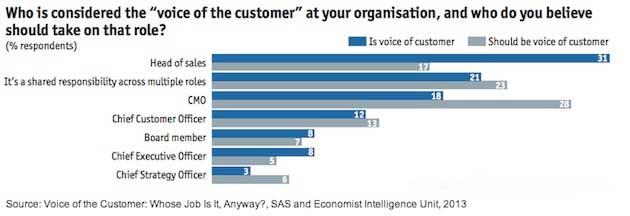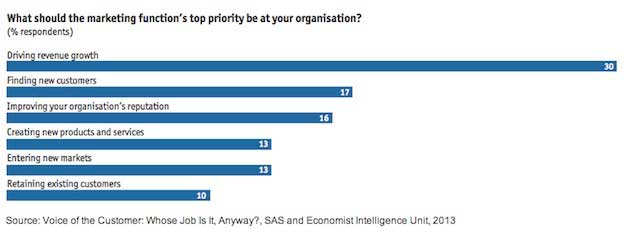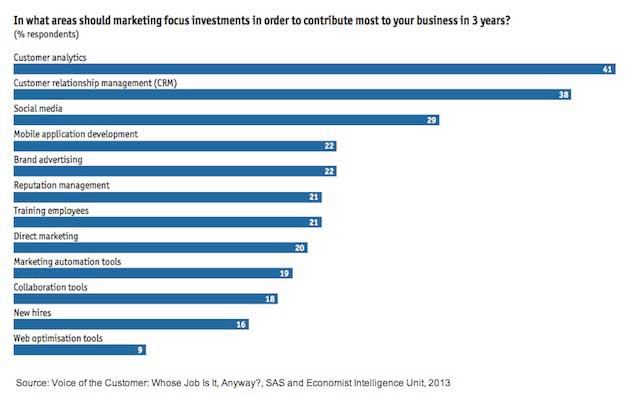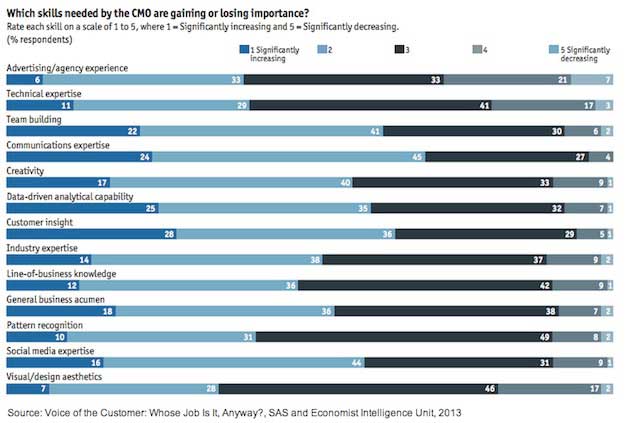Only six in ten senior business leaders view their companies as customer-centric, and just over half (56%) report a clear understanding of customers' tastes and needs, according to a recent report from The Economist Intelligence Unit and SAS.
The report, which was based on a survey of 389 global marketing and nonmarketing executives conducted last year, also highlights a disconnect among leaders regarding whose responsibility it is to make understanding and interacting with the customer their top priority.
Nearly one-quarter of chief marketing officers (CMOs) surveyed want a chief customer officer to take responsibility for being the voice of the customer, whereas another quarter see the task as their own. Currently, the CMO is considered the voice of the customer at just 18% of organizations, trailing the head of sales (31%).

Below, additional key findings from the report, Voice of the Customer: Whose Job Is It, Anyway?
CMOs: A Lot on Their Plates
According to the report, CMOs may be struggling to champion the customer in part because they already have a large set of responsibilities, including overseeing traditional marketing functions such as advertising, brand marketing, product marketing, and communications.
CMOs are also broadly expected by C-suite leaders to increase revenue, add new customers, and improve their organizations' reputations.

Changing Demands and Skills
The rise of the Web, big data, social media, and mobile have added complexity to the already challenging CMO role, but those changes may also be providing senior marketers with the responsibilities and skills needed to deliver on customer-centric mandates, according to the report.
Asked "What areas should marketing focus investments in order to contribute most to your business in three years?" survey respondents listed customer analytics as the most important (41%), followed by customer relationship management (38%) and social media (29%).

In addition, when asked to rank the growing/declining importance of various CMO skills, survey respondents listed customer insight, data-driven analytical capabilities, and social media expertise among those gaining most in value.

About the research: The report was based on a global survey conducted in July 2012 of 389 executives. Respondents include marketing and nonmarketing professionals from 19 industries, including financial services (14%), consumer goods (11%), IT/Technology (8%), and manufacturing (8%).




